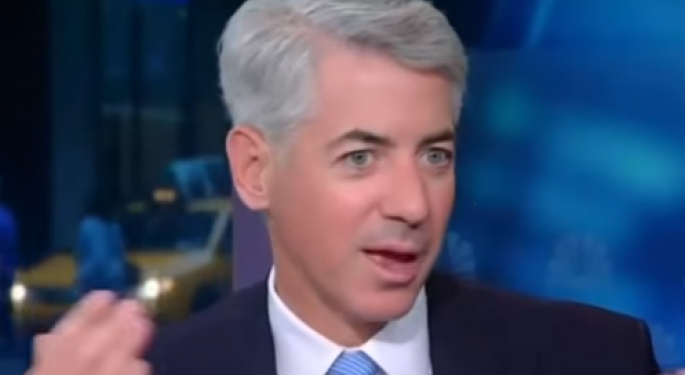What Is A SPARC? Bill Ackman Seeking To Change PSTH Structure Again
Bill Ackman’s Pershing Square Tontine Holdings (PSTH) is one of the largest and most well-known SPACs. After ending plans to acquire a 10% stake in Universal Music Group, the SPAC now faces a lawsuit.
Ackman is seeking to change the structure of the company going forward. Here’s what investors should know.
What Happened: Pershing Square Tontine would become Pershing Square SPARC Holdings under a new plan laid out in a letter by Ackman.
PSTH had previously sought to form a SPARC. Creating a SPARC would require PSTH shareholder approval, approval by the SEC and a rule change from the New York Stock Exchange.
“As a reminder, SPARC, which we conceived of months ago and disclosed in connection with the UMG transaction, is a modified opt-in (rather than the current opt-out) SPAC structure where investors in PSTH would receive long-dated, transferrable SPARC warrants to acquire common stock in SPARC,” Ackman said in the letter.
The SPARC warrant would be somewhat backwards traded from an existing SPAC. Right now, an investor can invest in a SPAC and then sell shares or redeem at the merger vote if they do not like the deal. A SPARC warrant owner would only invest or put money in if they like the deal that's announced. Investors could buy in using their SPARC warrant at the net asset value of the deal.
A SPARC provides some advantages over a traditional SPAC deal.
- One advantage is SPAC warrants do not have the typical two-year deadline to complete a SPAC transaction.
- Another advantage for investors Ackman highlighted was the SPARC will not hold investors’ money while looking for a target company: “This eliminates the substantial opportunity cost of capital that burdens all SPAC investors.”
If the plan by Ackman is approved, PSTH shareholders would get $20 per share in cash and one SPARC warrant for every share they currently own.
Related Link: Bill Ackman's SPAC Abandons Universal Music Group Deal Over SEC Objections
Why It’s Important: The lawsuit against PSTH centers on how the SPAC was structured and some are arguing it’s not really a SPAC at all.
Ackman called the lawsuit meritless, but has said the legal system could see a long process in resolving the case.
“As the law professors who brought the case should very well know, holding cash and government securities while seeking a business combination does not make PSTH an illegal investment company,” Ackman said.
Ackman said he has already been working with the SEC on approval of the SPARC structure and believes it will be approved in the future.
"The mere existence of the litigation may deter potential merger partners from working with PSTH on a transaction until the lawsuit is finally resolved," he said.
Without changing the structure of the deal, Ackman said it could be difficult to get a deal done in time. The PSTH merger can extend its deadline by up to six months with a vote of current shareholders.
“PSTH is saying they can’t get a deal done with the lawsuit, so if you’re holding the share or warrant, Bill Ackman is telling you the lawsuit tie him up long enough that he’ll have to liquidate,” SPACInsider tweeted. “Either way, you’ll have to liquidate, but at least you’ll have a SPARC.”
Price Action: PSTH shares closed Friday down 1.25% at $19.73, hitting a new all-time low. Shares had previously traded between $19.93 and $34.10 over the last 52 weeks.
© 2021 Benzinga.com. Benzinga does not provide investment advice. All rights reserved.




